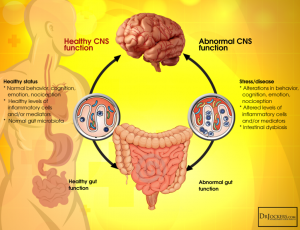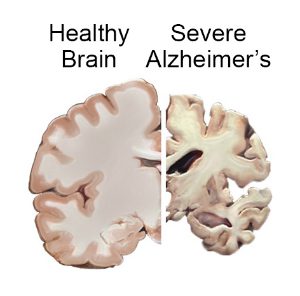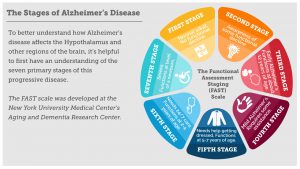What is Alzheimer’s Disease
Alzheimer’s disease is a disease which destroys memory & other mental functions of the body. What happens in Alzheimer’s disease is that Brain cell connections & the cells themselves degenerate & die causing memory loss.
Impact of the disease on individuals
- Memory loss
- Poor judgment leading to bad decisions
- Loss of spontaneity and sense of initiative
- Taking longer to complete normal daily tasks
- Repeating questions
- Wandering and getting lost
- Losing things or misplacing them in odd places
- Mood and personality changes
- Increased anxiety and/or aggression
Impact on Families
- Increased Risk of Physical Illness
- Diminished Emotional Well-Being
- Increasing Social Isolation
- Growing Financial Challenges
Techniques used to diagnose the disease?
Techniques used are
- Mental status test.
- Neuropsychological testing
- Blood tests
- Lumbar puncture (spinal tap).
- Urinalysis.
- Chest X-ray.
- Electroencephalogram (EEG).
- Computed tomography scan (also called a CT or CAT scan).
- Magnetic resonance imaging (MRI).Genetic testing.

Which systems are affected?
- Central Nervous System
- Neuromuscular System
- Digestive System
- Peripheral Nervous System

Role of transplantation or any other scientific advances in the treatment of diseases?
Specific treatment for Alzheimer’s disease will be determined by your doctor based on:
- Your age, overall health, and medical history
- The extent of the disease
- Your tolerance for specific medications, procedures, or therapies
- Expectations for the course of the disease
- Though at this time, there is no cure for Alzheimer’s, no way of slowing down the progression of this disease, and no treatment available to reverse the deterioration of Alzheimer’s disease.
Implications of Scientific advances for diagnosis?
CONS
- These diagnosing tests are expensive & are not economically affordable by all. For example, MRI test would be easily affordable by middle class or rich people but not by poor people who don’t earn sufficient money even to buy their basic necessities. Even if these tests are affordable by people in America but they are not affordable by people who are in different geographic locations
- Nowadays especially in India doctors have started to cheat the patients by taking more money or doing operations that are heavily expensive & even tests that are not required hence the trust on doctors is less & people would not check themselves with doctors as the trust is broken.
PROS
- If we look into the matter socially than we can identify that people who do these test & have positive in Alzheimer’s disease there family members have to face a lot of problems & if we know about the disease in early stage than the family can opt for some time of solution
- If we look into economical part if we are able to make more accurate diagnosis treatment than we can sell our technology to boost our economy or people from abroad will come to our country to cure their diseases as we will be ahead in medical technology.


